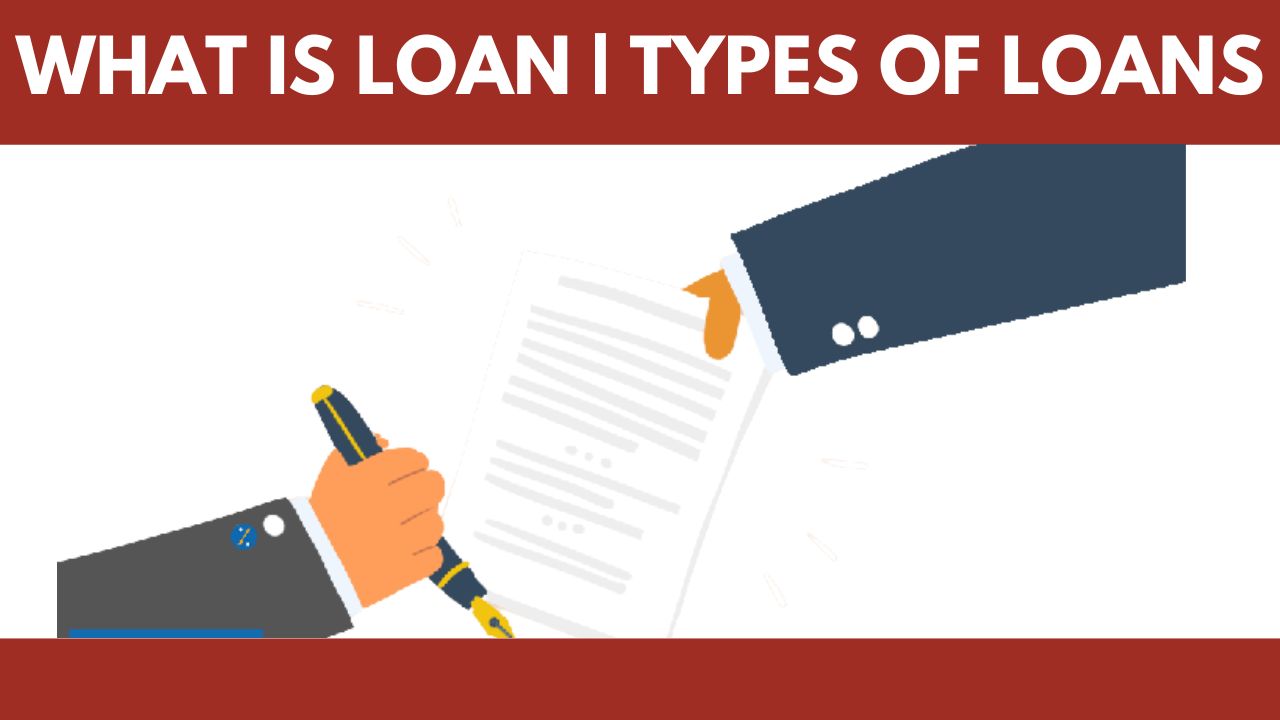What is Loan | Types of Loans
What is Loan : Here we are going to give information related to the loan and will try to give all the important questions related to what is loan and many of you will be well aware of the loan, besides many such people There are those who do not have complete information about it and this post of ours will be very useful for all of them.
Here, along with What is Loan, we will also tell what are the types of loans and what are the things and documents needed to take a loan, from which institution you can take a loan and how much interest rate is there. You have to give, we will try our best to give all this information, want to get the information, read this post carefully from beginning to end.
Best Health Insurance Company In India
What is Insurance And Type of Insurance
Benefits of Credit Card | Advantage & Disadvantage
What is Loan?
A credit is a monetary exchange wherein a bank gives assets to a borrower, ordinarily with the assumption that the acquired sum will be repaid with premium over a foreordained timeframe.
Credits are a typical way for people and organizations to get to capital for a large number of purposes, like buying a home, beginning a business, or paying for instruction.
Loans typically involve a formal agreement between the lender and the borrower, which outlines the terms and conditions of the loan. These terms may include the loan amount, the interest rate, the repayment schedule, and any fees or penalties associated with the loan.
The loan amount refers to the total amount of money that the borrower receives from the lender. (What is Loan) The interest rate is the cost of borrowing the money, expressed as a percentage of the loan amount.
The repayment schedule specifies how the loan will be repaid over time, including the number of payments, the amount of each payment, and the due dates for each payment.
Loans may be secured or unsecured. A secured loan is backed by collateral, such as a home or car, which the lender can seize if the borrower fails to repay the loan.
An unsecured loan, on the other hand, does not require collateral but may have a higher interest rate to compensate for the increased risk to the lender.
Credits are an essential piece of the cutting edge economy as they give people and organizations the vital assets to buy labor and products or put resources into projects.
Credits come in different structures, including individual advances, home credits, vehicle advances, understudy loans, business credits, and then some. Each kind of credit fills a particular need and has various agreements that borrowers should keep.
Types of Loan
Loans are financial products that allow individuals and businesses to borrow money from lenders with the expectation of paying it back over time, typically with interest.
There are several different types of loans available, each with its own set of features, benefits, and drawbacks. In this essay, we will explore some of the most common types of loans.
- Home Loans
Home loans, also known as mortgages, are loans issued to individuals or couples to purchase real estate property. (What is Loan) These loans are secured by the property itself,
which means that if the borrower defaults on the loan, the lender can take possession of the property. Home loans can be either fixed-rate or adjustable-rate, and the repayment period is usually between 15 and 30 years.
- Business Loans
Business loans are loans issued to businesses for a variety of purposes, such as purchasing equipment, expanding operations, or hiring employees.
These loans can be secured or unsecured, with secured loans typically offering lower interest rates because they are backed by collateral. Business loans are typically repaid over a fixed period, with interest rates that vary depending on the borrower’s credit score, income, and other factors.
- Personal Loans
Individual advances are unstable credits that are given to people for individual use, (What is Loan) like home redesigns, hospital expenses, or obligation combination.
These advances are ordinarily reimbursed over a decent period, with loan fees that shift contingent upon the borrower’s FICO rating, pay, and different variables.
- Car Loans
Vehicle credits are credits given to people to buy a vehicle. These advances can be gotten or unstable, with got credits normally offering lower loan fees on the grounds that the actual vehicle fills in as guarantee.
Vehicle credits are normally reimbursed over a decent period, with loan fees that differ contingent upon the borrower’s FICO rating, pay, and different elements.
- Student Loans
Understudy loans will be credits given to understudies to pay for instructive costs, like educational cost, books, and everyday costs. These credits can be either government or private, with administrative advances normally offering lower financing costs and more adaptable reimbursement choices than private credits.
Understudy loans are commonly reimbursed over a decent period, (What is Loan) with financing costs that differ contingent upon the kind of advance and the borrower’s FICO rating.
- Secured Loans
Secured loans are loans that are backed by collateral, such as a car, a house, or other valuable assets. Because the lender has the right to seize the collateral if the borrower defaults on the loan, secured loans typically offer lower interest rates than unsecured loans.
CONCLUSION (What is Loan)
(What is Loan) A loan is a financial product that enables individuals, businesses, and organizations to borrow money from lenders with the expectation of paying it back over time with interest. Loans are a critical part of the financial system, and they play a vital role in enabling economic growth and development.
